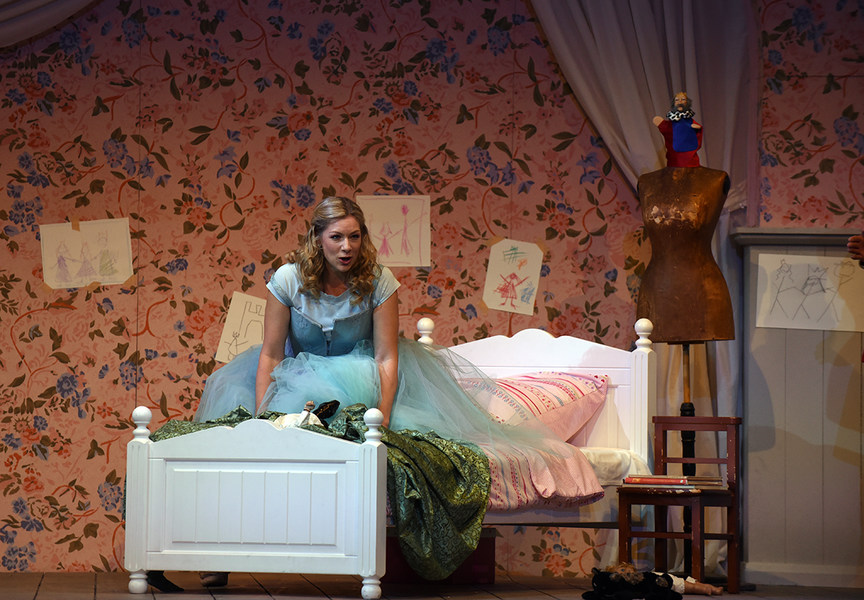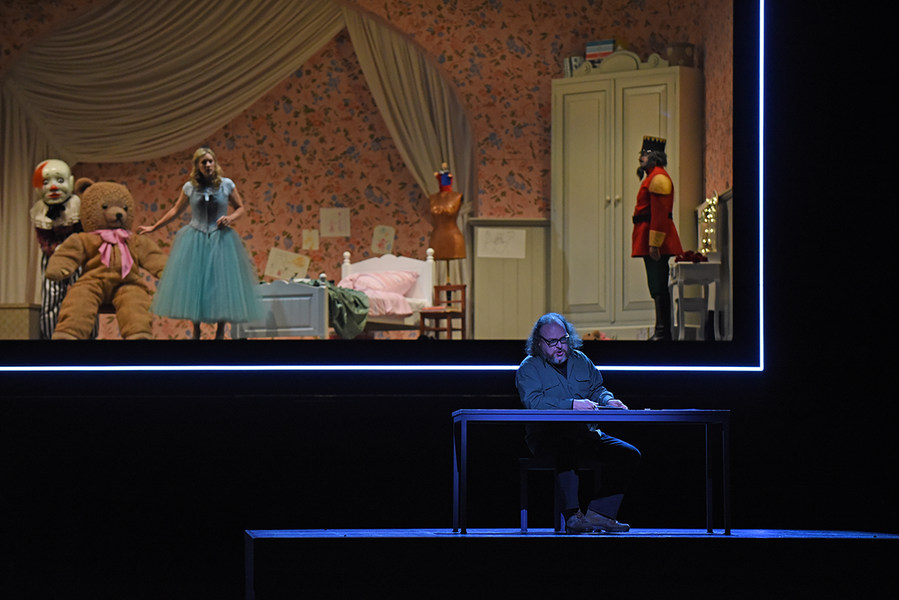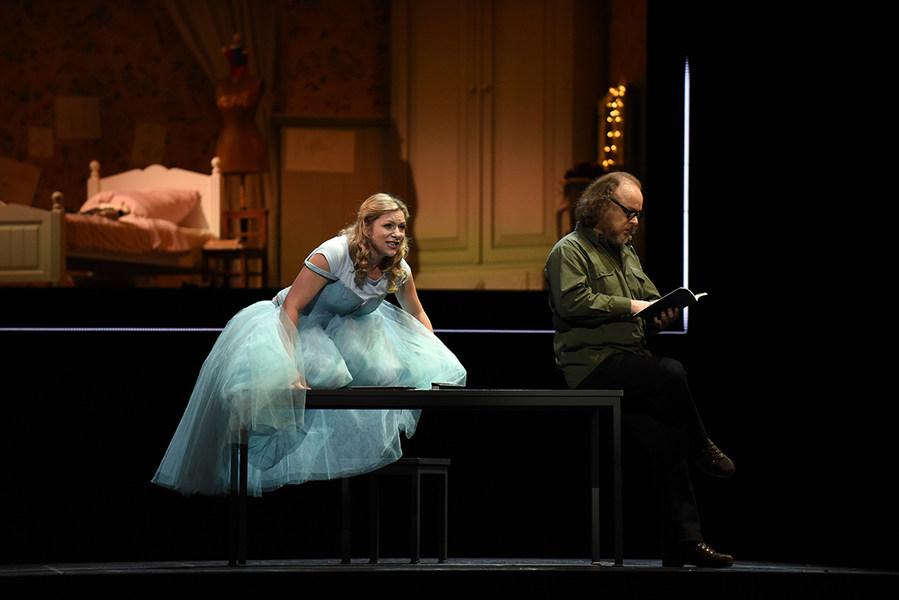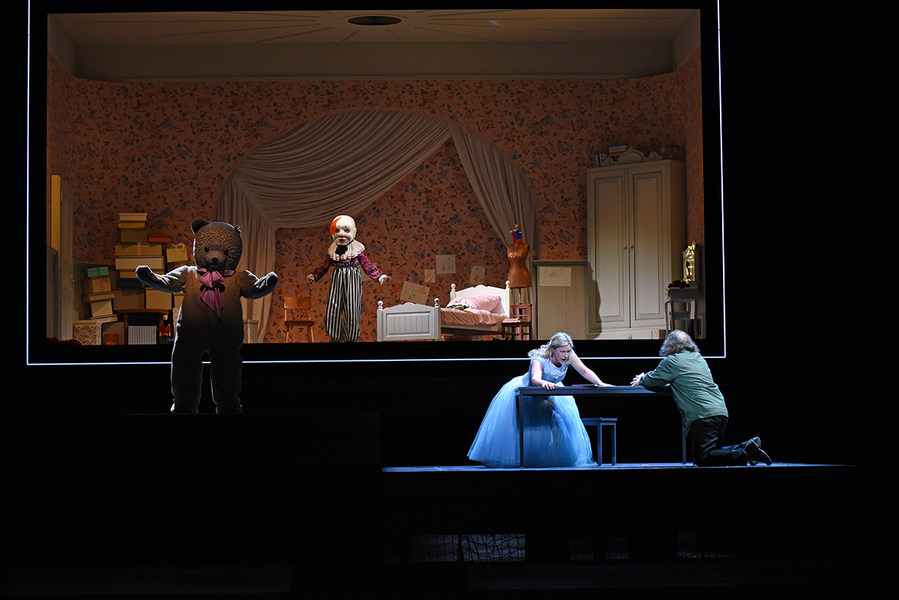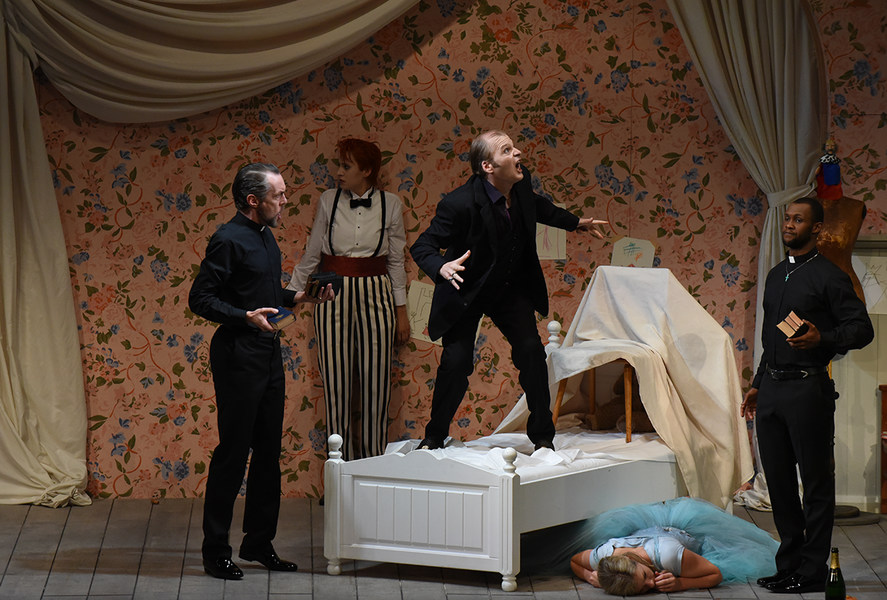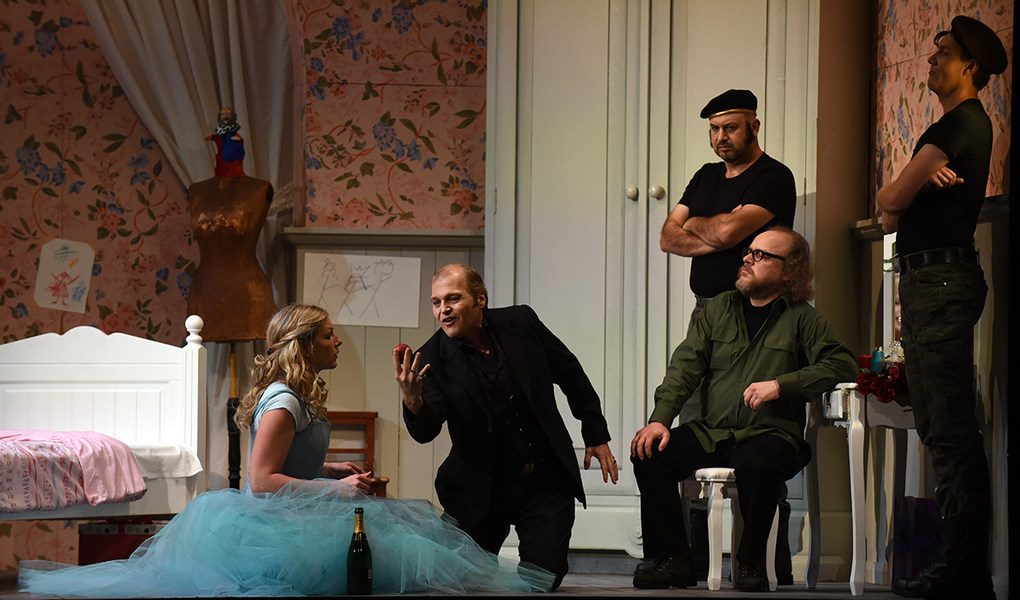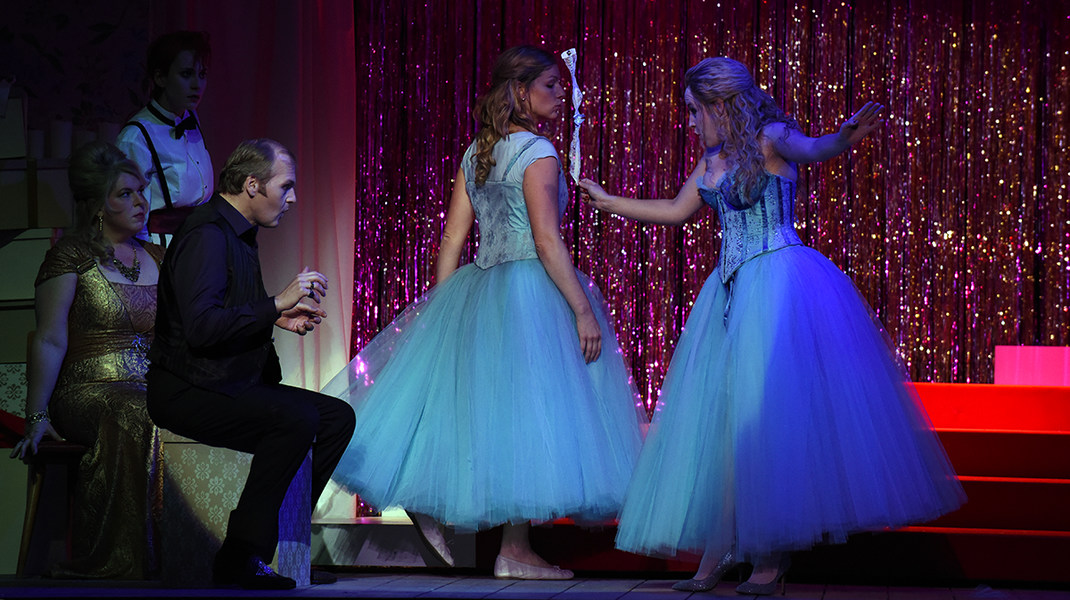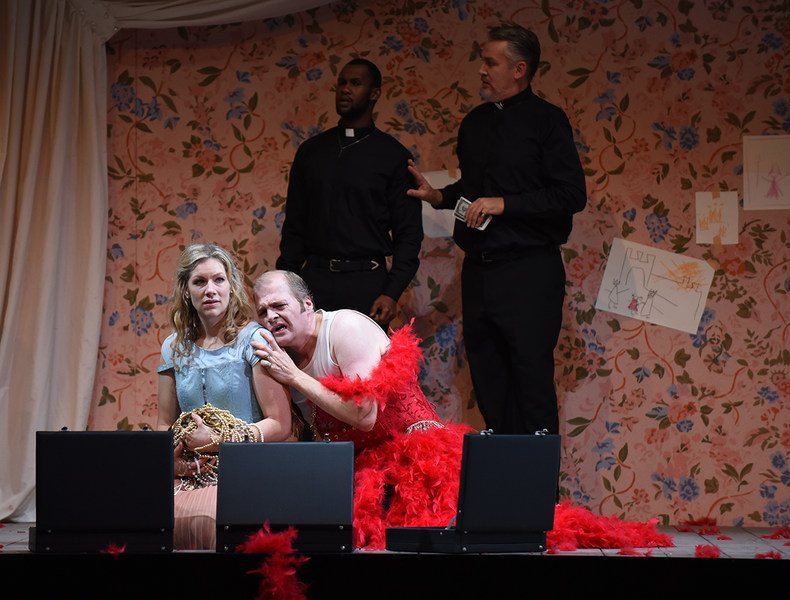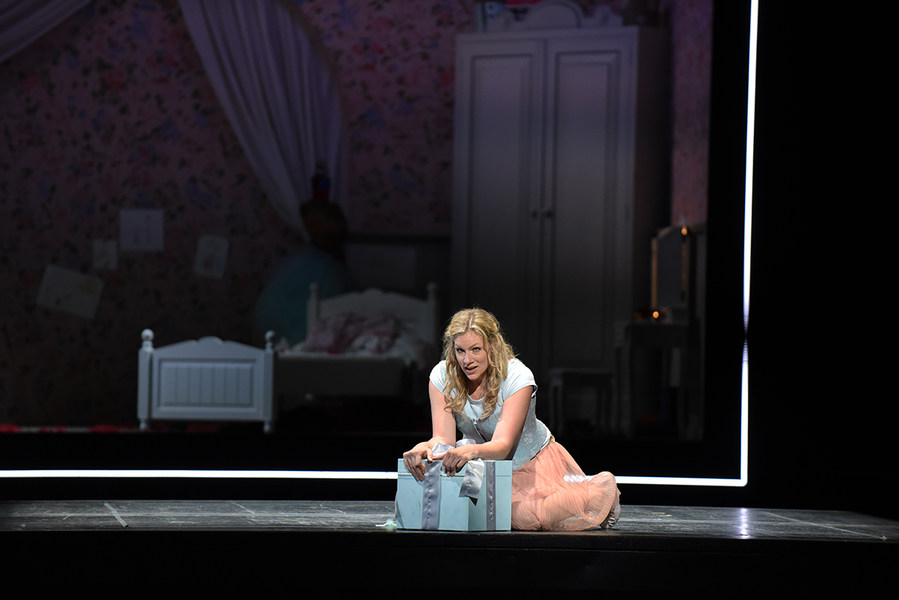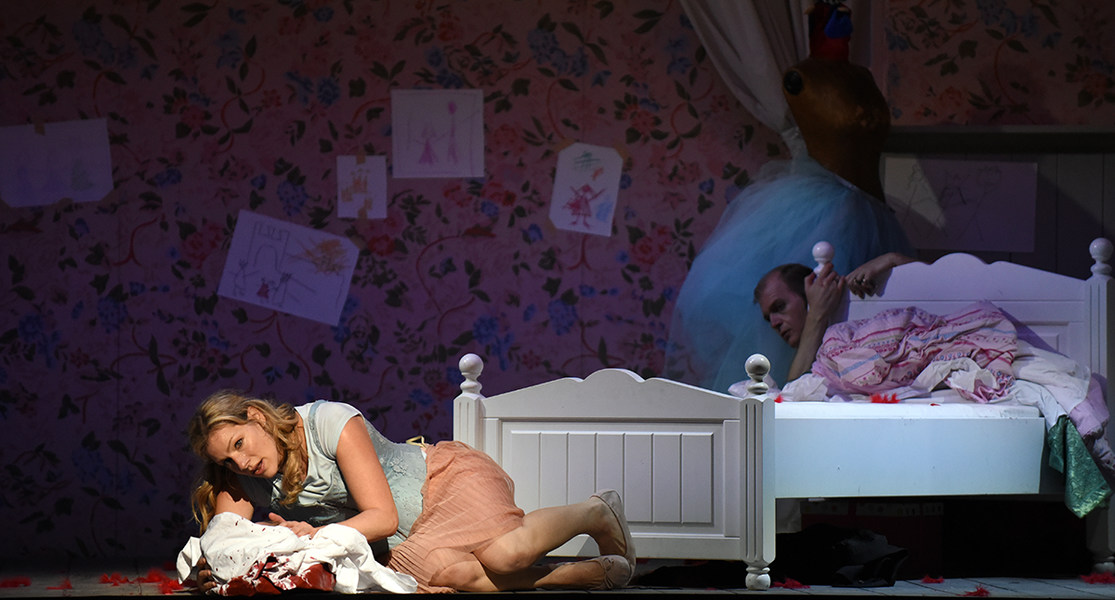First performed in Dresden in 1905, Richard Strauss’s masterpiece explores the dark recesses of the human soul.
Operatic drama in one act
Libretto by Richard Strauss after Oscar Wilde’s tale of the same name
Performed in German with German and English supertitles
Premiere
24. September 2016
Dates & Cast
- Conductor Juraj Valčuha
- Staging Michael Schulz
- Set Design Dirk Becker
- Costume Design Renée Listerdal
- Lighting Design Fabio Antoci
- Video Philipp Contag-Lada
- Choreography Koko La Douce
- Dramaturgy Anna Melcher
- Conductor Juraj Valčuha
- Staging Michael Schulz
- Set Design Dirk Becker
- Costume Design Renée Listerdal
- Lighting Design Fabio Antoci
- Video Philipp Contag-Lada
- Choreography Koko La Douce
- Dramaturgy Anna Melcher
Project Partner:
Sparkassen-Finanzgruppe Sachsen
Ostsächsische Sparkasse Dresden
Sparkassen-Versicherung Sachsen
LBBW
- Herodes Gerhard Siegel
- Herodias Evelyn Herlitzius
- Salome Amanda Majeski
- Jochanaan Markus Marquardt
- Narraboth Mario Lerchenberger
- Ein Page der Herodias Valerie Eickhoff
- Erster Jude Aaron Pegram
- Zweiter Jude Timothy Oliver
- Dritter Jude Simeon Esper
- Vierter Jude Gerald Hupach
- Fünfter Jude Padraic Rowan
- Erster Nazarener Scott Conner
- Zweiter Nazarener Jongwoo Hong
- Erster Soldat Andrew Harris
- Zweiter Soldat Neven Crnić
- Ein Cappadocier Gerrit Illenberger
- Ein Sklave Rosalia Cid
- Conductor Juraj Valčuha
- Staging Michael Schulz
- Set Design Dirk Becker
- Costume Design Renée Listerdal
- Lighting Design Fabio Antoci
- Video Philipp Contag-Lada
- Choreography Koko La Douce
- Dramaturgy Anna Melcher
Project Partner:
Sparkassen-Finanzgruppe Sachsen
Ostsächsische Sparkasse Dresden
Sparkassen-Versicherung Sachsen
LBBW
- Herodes Gerhard Siegel
- Herodias Evelyn Herlitzius
- Salome Amanda Majeski
- Jochanaan Markus Marquardt
- Narraboth Mario Lerchenberger
- Ein Page der Herodias Valerie Eickhoff
- Erster Jude Aaron Pegram
- Zweiter Jude Timothy Oliver
- Dritter Jude Simeon Esper
- Vierter Jude Gerald Hupach
- Fünfter Jude Padraic Rowan
- Erster Nazarener Scott Conner
- Zweiter Nazarener Jongwoo Hong
- Erster Soldat Andrew Harris
- Zweiter Soldat Neven Crnić
- Ein Cappadocier Gerrit Illenberger
- Ein Sklave Rosalia Cid
- Conductor Juraj Valčuha
- Staging Michael Schulz
- Set Design Dirk Becker
- Costume Design Renée Listerdal
- Lighting Design Fabio Antoci
- Video Philipp Contag-Lada
- Choreography Koko La Douce
- Dramaturgy Anna Melcher
Project Partner:
Sparkassen-Finanzgruppe Sachsen
Ostsächsische Sparkasse Dresden
Sparkassen-Versicherung Sachsen
LBBW
- Herodes Gerhard Siegel
- Herodias Evelyn Herlitzius
- Salome Amanda Majeski
- Jochanaan Markus Marquardt
- Narraboth Mario Lerchenberger
- Ein Page der Herodias Valerie Eickhoff
- Erster Jude Aaron Pegram
- Zweiter Jude Timothy Oliver
- Dritter Jude Simeon Esper
- Vierter Jude Gerald Hupach
- Fünfter Jude Padraic Rowan
- Erster Nazarener Scott Conner
- Zweiter Nazarener Jongwoo Hong
- Erster Soldat Andrew Harris
- Zweiter Soldat Neven Crnić
- Ein Cappadocier Gerrit Illenberger
- Ein Sklave Rosalia Cid
In brief
The world premiere of Richard Strauss’s »Salome« at the Semperoper on 9 December 1905 was a true milestone in 20th century opera. Unlike any composer before him, Strauss brought the fin-de-siècle at-mosphere of decadence, psychological hyper-sensitivity as well as uninhibited and destructive sexuality to the operatic stage, overwhelming the listener with his intoxicating and at times brutal sonic world, perfectly matching the brilliant sound of the Staatskapelle Dresden. This one-act opera is not based on some Teutonic myth, as in the German-language operas of the followers of Wagner, but rather on an oriental tale from the Bible: The Judean princess Salome is bored with her life at the court of King Herod. The fervid voice of the captive prophet Jochanaan, on the other hand, exerts an almost erotic fascination over her. But when the stern prophet brusquely rejects the princess’s advances, Salome requests of her stepfather Herod a perverse reward for her lascivious dance: Jochanaan’s head in a silver bowl.
Storyline
»How beautiful is princess Salome tonight!« – Narraboth is hopelessly in love with Salome, the step-daughter of the tetrarch Herod who is celebrating a raucous party next door. Repelled by the carousing of her lecherous stepfather, she retreats and listens enchanted to the voice of the captured prophet Jochanaan who declares the arrival of the Messiah. She requests to see him. Against the tetrarch’s express wish, Narraboth fulfils her request. Jochanaan curses the dissolute moral conduct of Salome’s mother, Herodias, and challenges her to change her life. She falls in love with him at first sight. In his despair, Narraboth kills himself. Salome wishes to kiss Jochanaan’s lips yet he rejects her advances and curses her.
Jochanaan’s words cause an argument, first between Herod and Herodias who wants to see the prophet dead, and then between the Jews and Nazarenes who cannot agree whether his announcement that the Messiah will appear is true. Herod believes that he is a dangerous, holy man and his words that the Messiah may awaken the dead trigger a panic-stricken fear in him. To distract himself, he asks Salome whom he desires, to dance for him. As a reward, he promises, under oath, to fulfil all her wishes. After the dance, Salome demands the head of Jochanaan. Nothing can change her mind and Herod must give in. Salome receives the head of Jochanaan and kisses his mouth before Herod orders to have her killed.
